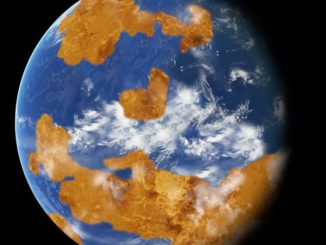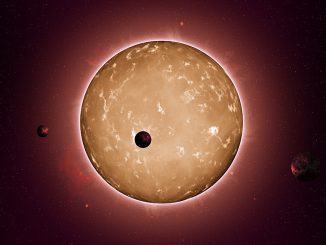
habitable zones

News

News

News
“Electric wind” can strip Earth-like planets of oceans and atmospheres
The space environment around a planet plays a key role in determining what molecules exist in the atmosphere – and whether the planet is habitable for life. New research shows that Venus has an “electric wind” strong enough to remove the components of water from its upper atmosphere, which may have played a significant role in stripping Earth’s twin planet of its oceans.

News
Stifling atmospheres could limit number of habitable exoplanets
New research reveals that fewer than predicted planets may be capable of harbouring life because their atmospheres keep them too hot. Computer simulations show that planets similar to or larger in mass than the Earth that are born with thick envelopes of hydrogen and helium are likely to retain their stifling atmospheres.
